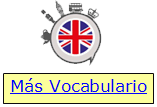|
A dependent preposition is a preposition
that always follows the same expression;
for example, we say ‘interested in’ and not X ‘interested on‘
or ‘interested about‘ X.
AT
good/bad/fantastic/awful…. at – Craig’s bad at tennis. Reza’s awful at
time keeping.
mad/angry at* – My girlfriend’s mad/angry at me for forgetting her
birthday.
ABOUT
excited about – Is there anything you’re excited about?
sorry for/about – Is there anything you’re sorry for?
crazy/mad about – What food are you crazy about?
un/happy about – She wasn’t happy about her exam result
enthusiastic about – We’re enthusiastic about podcasting
IN
un/interested in – What are you interested in at the moment?
un/successful in – Steve Jobs was extremely successful in business.
deficient in – Peter’s poor diet is deficient in vitamins
OF
sick of / tired of – Craig’s getting a bit tired of Reza’s old jokes
proud of – What have you done in your life that you’re proud of?
afraid/frightened of – What are you afraid/frightened of?
typical of – It’s typical of him to cancel at the last minute
fond of (= keen on) – We’re rather fond of “dulce de leche”
guilty of – The suspect was found guilty of murder.
WITH
dis/pleased with – The headmaster was pleased with the new student’s
progress.
dis/satisfied with – I am extremely dissatisfied with the poor service
in this restaurant.
disgusted with – She was disgusted with her new friend’s bad table
manners.
crowded with – Valencia is crowded with people during the busy Fallas
festival.
content with – Reza’s pretty content with his new shoes.
TO
(to be/get) used to – The EU may have to get used to the British no
longer being a member soon.
sensitive to – You should try to be sensitive to my spouse’s needs.
similar to – Bob writes in a similar way to me
FROM
different from – Canada’s climate is very different from Bolivia’s.
safe from – The refugees went far away to be safe from the war.
FOR
famous for – Scotland is famous for its beautiful highland scenery and
whisky.
convenient for – The number 23 bus is very convenient for getting to the
shopping centre.
ON
intent on – The terrorist was intent on causing destruction.
keen on (= fond of) – We’re rather keen on “dulce de leche”
 *Dispones
de más
PODCAST en inglés publicados en los cuadernos anteriores *Dispones
de más
PODCAST en inglés publicados en los cuadernos anteriores
a los que puedes acceder directamente así como al índice de su
contenido. |
